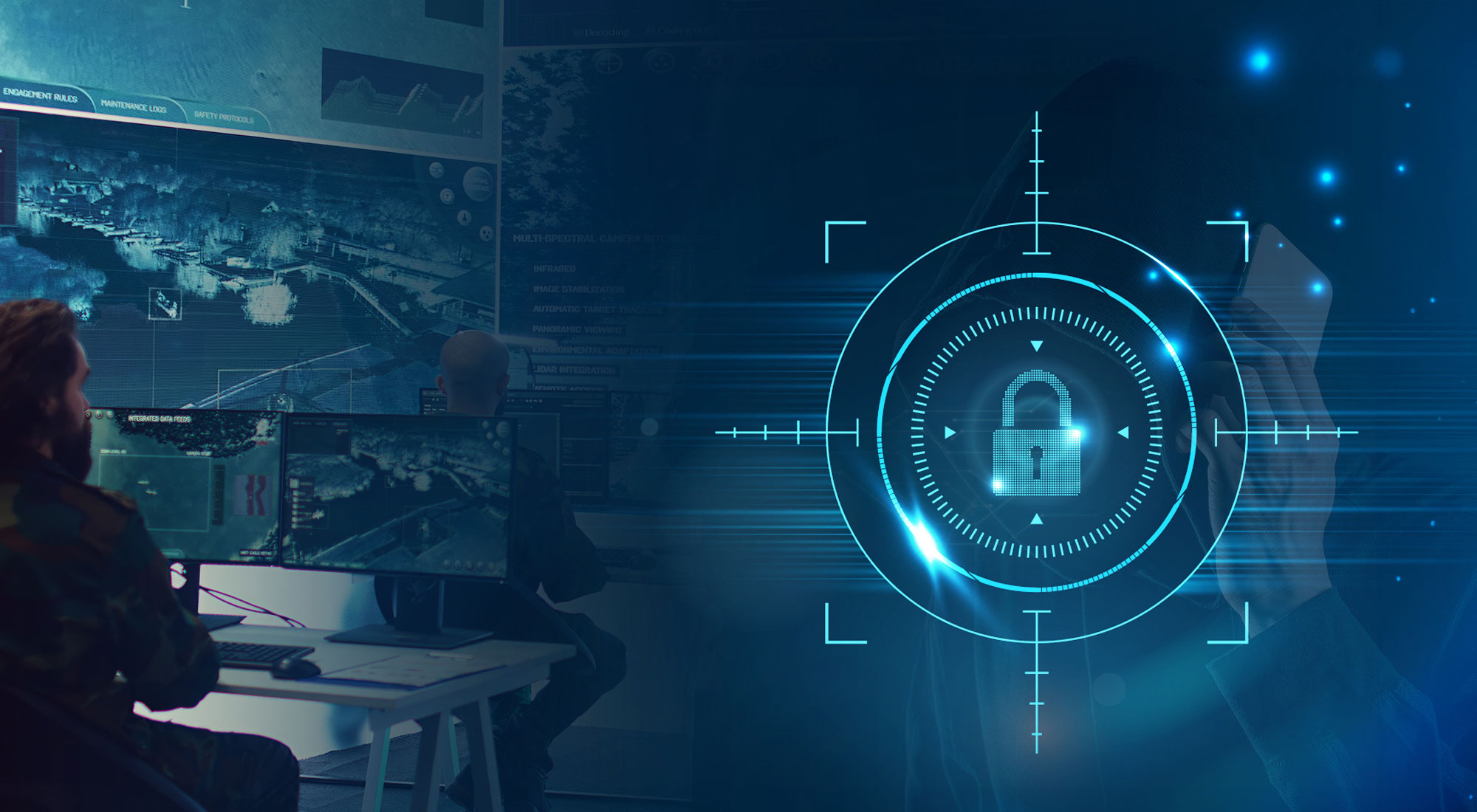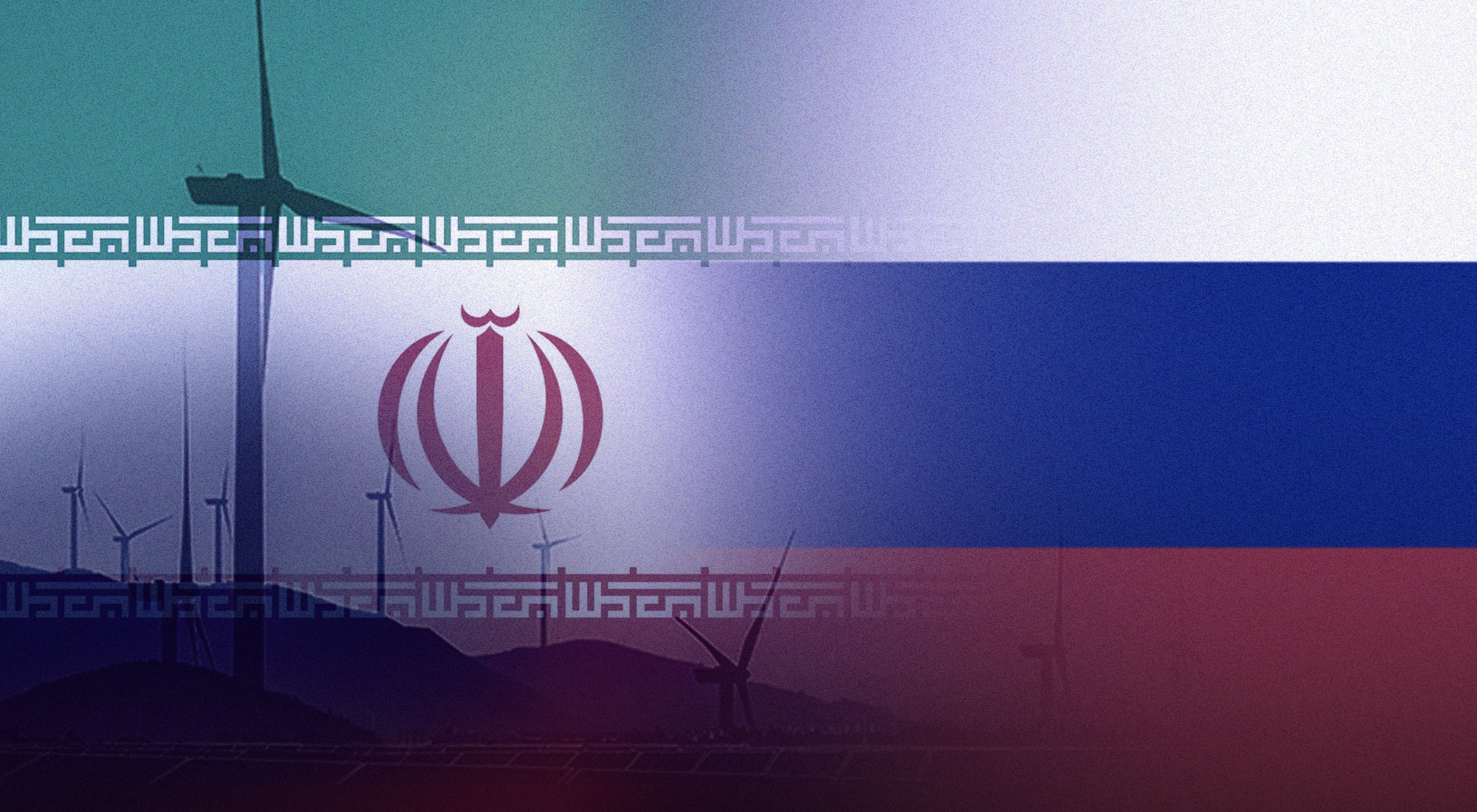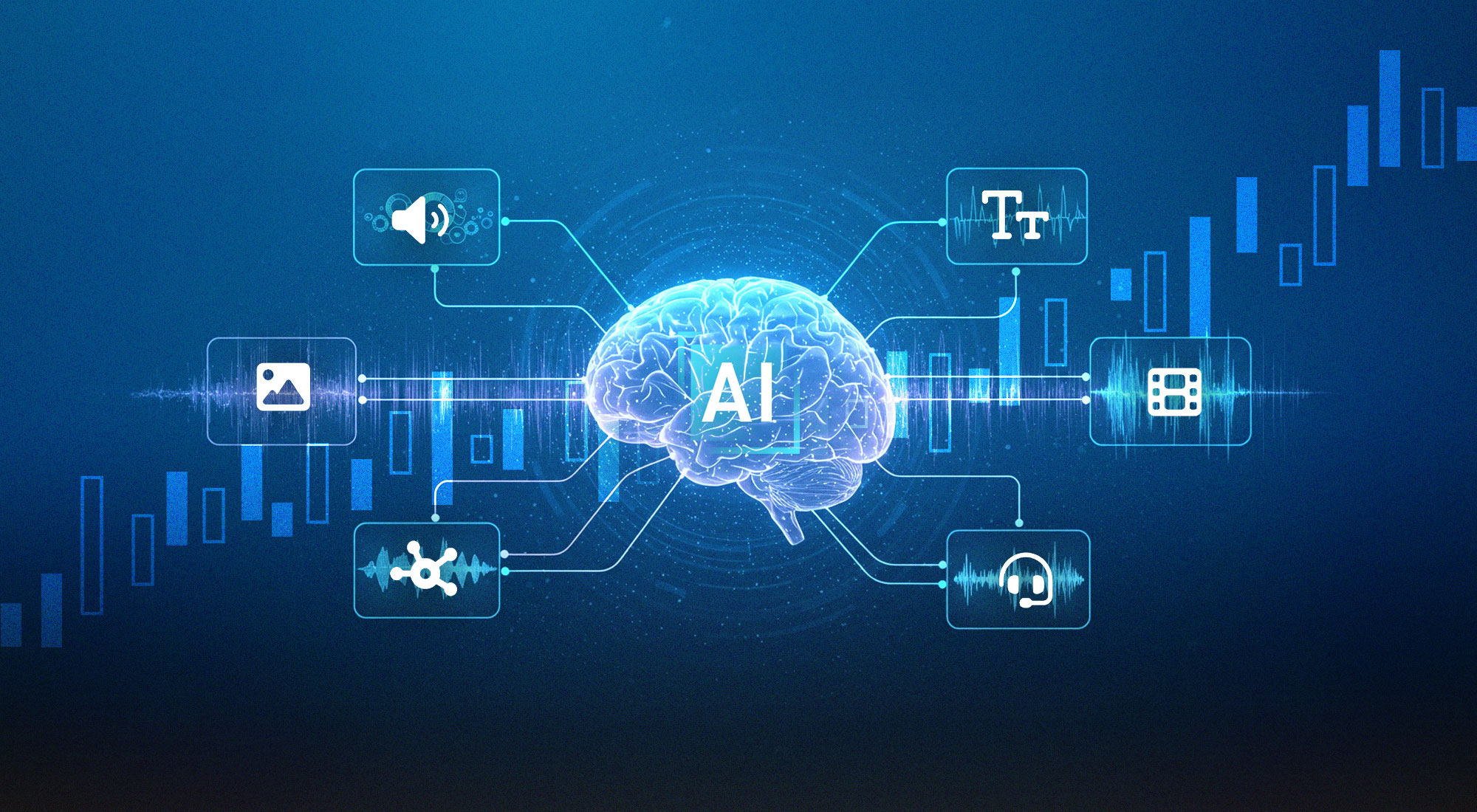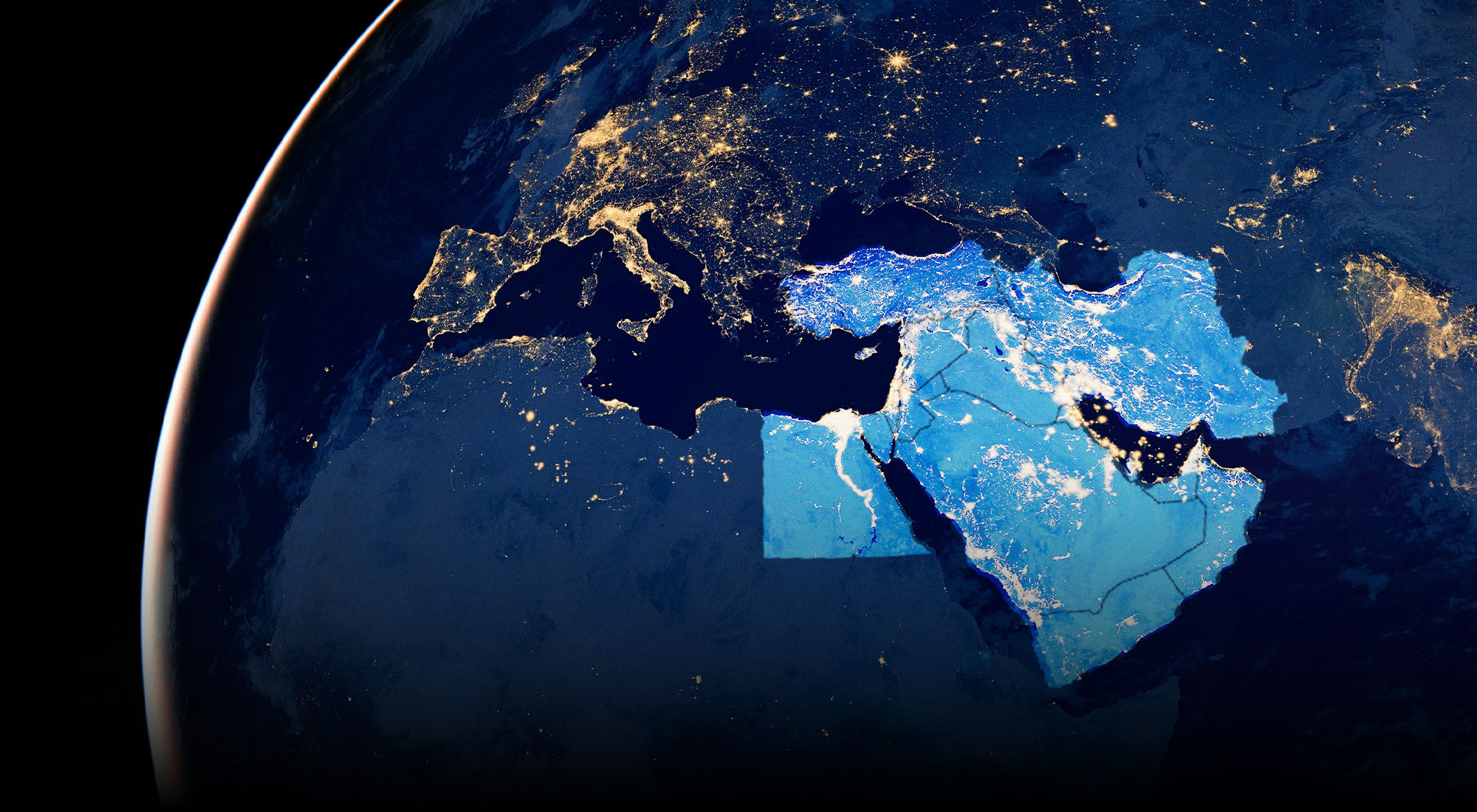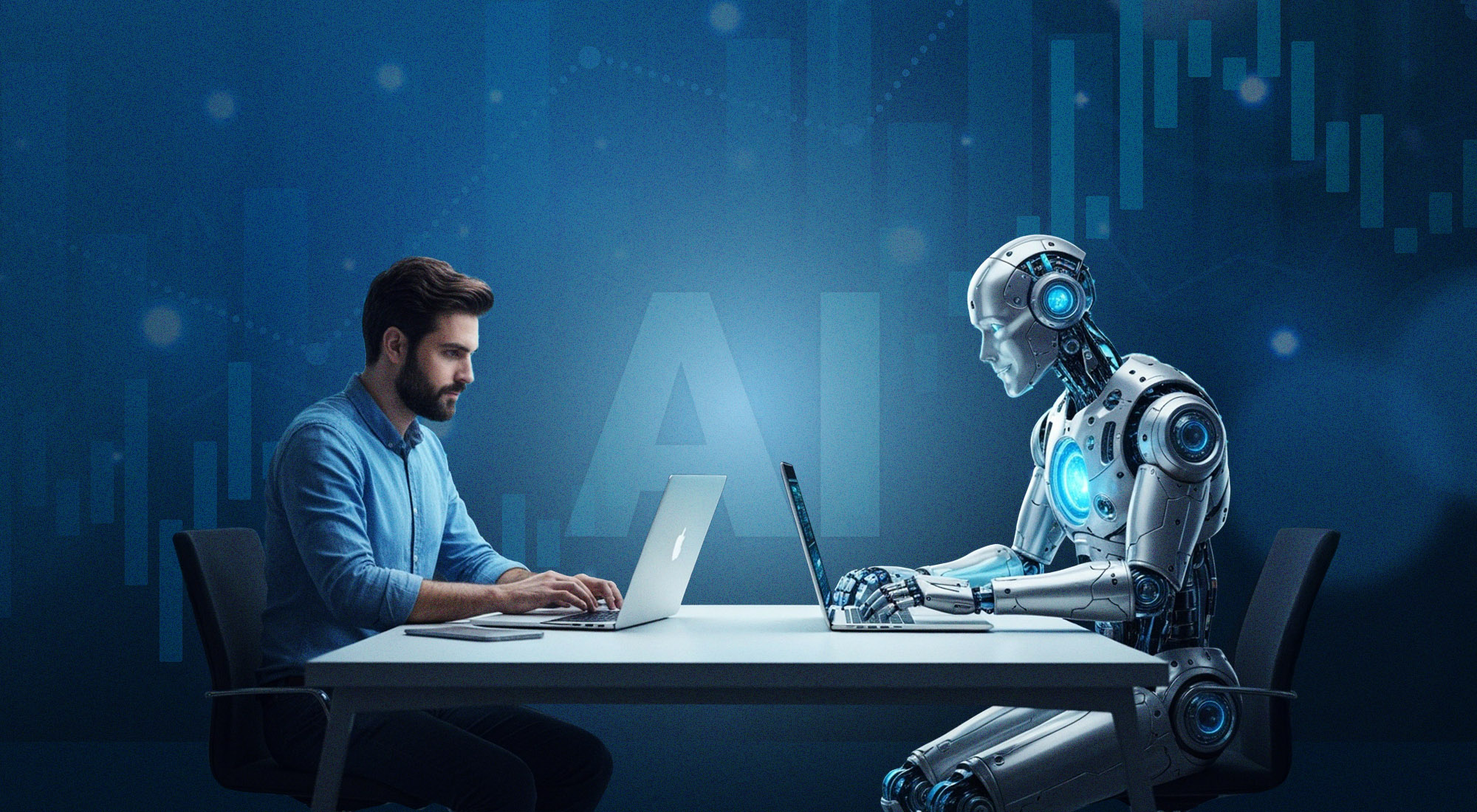Today, the world is faced with multi-dimensional complexities due to digital developments, and governments are not the only actors facing new challenges and opportunities. Information Technology (IT) has penetrated all business sectors and our personal lives, and with the phenomenon of digital technologies, national security will be defined as something beyond the traditional concept of protecting the country’s territorial integrity and preventing the attack of other countries’ military forces.
The dependence of all economic, social, communication, and cultural aspects of human life on IT has made societies more involved with these technologies. This, in turn, causes the social capital of nations and the lifestyles of societies to undergo dramatic changes with the development of IT. These developments are intertwined with the economy and international relations in such a way that it is no longer possible to define national security with the terms “national” and “within borders”; individual security becomes national security.
IT has become a fundamental part of societies, and with the advancement of digital technology, in addition to the government, non-state actors such as private companies, NGOs, multinational companies, and even the public will influence the national security of countries. In this case, national security will find a broader definition and new challenges and opportunities.
Security and IT
Security is one of the most important issues in international relations because it affects people, governments, the structure of the international system, and emerging actors in international relations. The concept of security is defined as part of “high policies” because it is related to territorial integrity and the preservation of existence, and it is one of the concepts that cannot be negotiated or ignored.
According to Samuel Makinda, security is defined as “the preservation of the norms, rules, institutions, and values of society.”[1] When these concepts take a general aspect and become the will of the majority of the nation, the definition of “national security” becomes necessary. According to this, national security has been described as the ability of a country to provide for the protection and defense of its citizens.[2]
In the past, the definition of security and its role was simple, but gradually, with the progress of modern financial, industrial, and commercial areas, and especially digital technologies, this concept changed. With the progress of civilization, the role of non-state actors such as businessmen, for-profit and non-profit organizations, and even international or multinational organizations became apparent. These developments showed that, as in the past, security cannot be defined in the same simple terms as before and needs a fundamental redefinition.
The 21st century corresponds to a global technological revolution. This revolution in planning, analysis, implementation, and monitoring by the government has been accompanied by the use of developed technologies. This has affected the components of national power such as political, economic, cultural, and military power, and the developing technologies have had a significant impact on the balance of power among the actors of the international system. Therefore, IT has completely changed the definition of national security and created threats and opportunities for it.[3]
The digital revolution of recent decades has transformed almost all aspects of life, especially the environment of national security. The volume and mass transmission of digitized information have put the speed of decision-making in an ambiguous situation. National security policymakers, both civilian and military, have access to unprecedented amounts of real-time information. This space has created a new space for non-state actors that portrays a more democratic situation. In this technological space, groups, ethnicities, minorities, social activists, and non-state actors who were previously excluded or marginalized due to lack of access to information, scarcity, and monopoly of data, returned to the scene and added to the complexities of the game. This, in turn, significantly complicated the global security environment.[4]
Among the influential factors and components in this transformation, IT has been the most effective. It refers to the utilization of digital technologies for the storage, processing, and transmission of data and information. This encompassing field involves a spectrum of hardware, including computers, servers, and storage devices, as well as an array of software, networks, and other digital innovations. IT serves as the backbone for a multitude of functions, spanning from fundamental data handling to intricate business processes like financial management, marketing strategies, and supply chain operations.[5]
Today, IT plays a significant role in redefining national security because there is almost no country or group that does not want or cannot use IT. Its use differs only in terms of quality. IT provides tools for development, processing, analysis, exchanging, storing and security,[6] thereby leaving a tremendous impact on national security because this process, in turn, provides challenges and opportunities that will affect national security.
Self-driving cars, drones, robots, biometric identification, 3D printers, social platforms, corruption and financial embezzlement, hacking, intelligence espionage, pornography, online gambling, artificial intelligence (AI) and its role in politics and military affairs, cybercrimes and cryptocurrencies are among the types of IT that have confronted national security with newer definitions, which in turn has led to a redefinition of the duties of governments and non-state actors.
Social platforms and national security
Social media and platforms are the fastest way to access information, and transnational links, start a business, and express feelings on a national and global level. The unique role of these networks in global communication has given minorities and cultures that were boycotted or isolated the opportunity to reappear and revive their subcultures. Unfortunately, this is a dual use, as these minorities may also be terrorist groups and use social media to promote terrorist activities and undermine national and global security.
Social media plays a crucial role in enhancing the national security of countries. It is considered a platform for exchanging thoughts and expressing the personality, intellect, culture, and beliefs of the participants. They can come to the aid of statesmen during important social and cultural events in the country through the expression of thoughts and the expandability of cultural beliefs and moral standards. With collective support, they can create a basis for broad social participation and collective backing. An example of this can be seen in the devastating earthquake of 6 February 2023 in Turkey and northern Syria.
In the wake of this earthquake, people took to social media to help the victims, and by promoting the idea of “national unity,” they tried to bridge political divides to bolster government support for aiding the victims of the earthquake. In the earthquake, which happened three months before the presidential and parliamentary elections in Turkey, some people called for putting aside the differences between the opposition parties so that they could use their power of influence among their supporters to support the government’s relief measures in a unified manner.[7] In addition, many people set up campaigns of several thousand people on social networks and provided their homes for free to earthquake victims and survivors.[8]
Social media has also induced changes in people’s lives in positive dimensions and sensitized them to social, cultural, scientific and political actions to help the government strengthen national security. For example, in the field of environmental policies, China is trying to increase the role of public participation in environmental decision-making. Since 2002, the Environmental Impact Assessment (EIA) law has required increased public participation, and the 2015 Environmental Protection Law includes an extensive chapter on enhancing participation and transparency in environmental information. Under the program “Urban Black and Odorous Water Information Platform,” the Chinese government is working with citizens to monitor water pollution via WeChat. It aims to track and put pressure on local government implementation efforts. In 2007, there were several social media-induced public protests against government-supported industrial projects, such as the protest against toxic chemical paraxylene (PX) plants in Xiamen. More recently, there have been social media-influenced protests against the Liulitin waste incinerator.[9]
On the other hand, the role of social media as a mechanism for destabilizing intellectual beliefs, building ideological thoughts, and negative moral and social virtues to create an imbalance in society, increasing the threat of national security and crisis has been fully acknowledged.[10] The nature of social networks has the potential to create widespread misinformation, as demonstrated in many revolutions and riots around the world. During last July’s protests in France, President Emmanuel Macron blamed TikTok, Snapchat, and other platforms for helping to fuel widespread unrest over the fatal police shooting of a 17-year-old driver.[11] For this reason, even though Western governments believe in the free flow of information, data transparency and non-censorship of information, they react to some platforms, such as TikTok, that challenge their sovereignty and feel that they endanger their national security.
In the latest move, the U.S. House of Representatives on 13 March voted 352 to 65 to pass a bill that would force TikTok to divest itself of its Chinese owner within six months or be banned from the U.S.[12] This bill is based on the fear of confidential personal information about American citizens falling into the hands of the Chinese government. It leads to a security threat because TikTok has the largest audience in the world, with 150 million users in the U.S.
In addition to its positive uses, social media can also fall into the wrong hands. There are many documents that terrorist groups use to promote themselves. The Islamic State of Iraq and the Levant (ISIS) took advantage of social media to attract and recruit new members. On 15 August 2017, the International Criminal Court (ICC) issued an arrest warrant for Mahmoud Mustafa Busayf Al-Werfalli, an alleged commander within the Al-Saiqa Brigade, for war crimes in Libya. Much of the information that the ICC relied on was material obtained on social media. A review of seven videos uploaded on social media showed that he directly shot the victims or ordered their execution.[13]
Misuses of social media have weakened sovereignty and national security, so the dangers of using it prompt countries to consider reviewing, monitoring, and even censoring some of the published content so that the country’s national security is not threatened. For example, French President Emmanuel Macron, in his speech at the opening session of the Internet Governance Forum in 2018, raised the need for a third way in Internet governance, a concept perceived between Silicon Valley and China’s authoritarian statism and argued that platform regulations to restore accountability and trust are prerequisites for preserving the values of freedom and democracy.[14]
Cybercrimes and national security
Cybercrime is a criminal activity that either targets or uses a computer, a computer network, or a networked device. Most cybercrime is committed by cybercriminals or hackers who want to make money. However, occasionally cybercrime aims to damage computers or networks for reasons other than profit. These could be political or personal.[15]
These crimes include Internet fraud, theft of bank card payment information, cyber extortion, digital currency hacking, digital espionage, gambling, pornography, and phishing among dozens of other cases.
Cybercrimes have become one of the most important threats to national security in the last few decades. The penetration of IT in a country’s infrastructure, such as transportation systems, air traffic control, the national power grid, dams, electric and nuclear power plants, and fuel and healthcare systems, shows what disasters can happen to countries by hacking such infrastructures.
In 2017, the Triton malware attack on a petrochemical plant in Saudi Arabia allowed hackers to take over the plant’s security systems. Its purpose was to release toxic gases that could kill people. Also, in the winter of 2016, a hacker group attacked Ukraine’s regional power system, knocking out power to about 700,000 people at -5°C (23°F) for six hours.[16]
The damages of cybercrimes and the costs of dealing with them impose a great financial burden on the economy of countries and private sectors. According to a report by Cybersecurity Ventures, global cybercrime spending will grow by 15 percent annually over the next five years, reaching US$10.5 trillion annually by 2025. In 2015, it was US$3 trillion. The costs of dealing with cybercrimes exceeded US$1 trillion in the five-year period between 2017 and 2021.[17]
The U.S., China, Brazil, and India are the biggest victims of cybercrime. About 65 percent of Internet users globally and 73 percent of U.S. web surfers have fallen victim to cybercrimes, including computer viruses, online credit card fraud and identity theft. As the most victimized of all nations, America ranks third, after China (83 percent) and Brazil and India (76 percent).[18]
Prior to the technological boom, China had less than 200 crimes involving digital data. However, before 2000, the nation had not encountered any online threats or detected any online presence. After 2009, more than 48,000 crimes were reported over the Internet and computers in China. These crimes included computer and network hacking, the creation, and spread of the virus, the possession and distribution of child pornography, and gambling violations. Since 2009, more than 1 million IP addresses have been controlled from other countries, more than 40,000 sites have been destroyed, and 18 million computers have been infected with different viruses. Overall, these figures represented 30% of the computers in China. These crimes on the Internet and computers were identified by the Chinese government for technological matters.[19]
The amount of damage and the number of victims of cybercrimes have put countries in a position to spend a lot of money every year to deal with these crimes. In an international action, they have called for a global response to such crimes and to maintain the sovereignty and integrity of national security mutually and cooperatively. For this purpose, since May 2021, the member states of the United Nations (UN) have negotiated an international treaty to deal with cybercrimes. If adopted by the UN General Assembly, it would be the first binding UN document on a cyber issue. Negotiations on the treaty, which has nine chapters and more than 60 articles, began in early 2022 and are expected to conclude in 2024 with ratification.[20]
Its approval will be a document mandating the strengthening of national security against cyber operations, of which governments typically impose many restrictions despite its usefulness.
AI and national security
AI is a rapidly growing field of technology with significant potential implications for national security. Today, it is rare to find a field in which AI is not used. AI research is used in the fields of information collection and analysis, logistics, cyber operations, information operations, command, and control, and all types of semi-autonomous and autonomous vehicles.
AI is the simulation of human intelligence processes by machines, especially computer systems. Specific applications of AI include expert systems, natural language processing (NLP), speech recognition and machine vision.[21]
The use of AI is increasing rapidly, and governments and companies have made extensive investments to develop and strengthen it. According to statistics, the revenue from the AI software market worldwide is expected to reach US$126 billion by 2025. For this reason, 37% of organizations in the world have implemented AI in their businesses in such a way that the percentage of companies that use AI has grown by 270% in the last four years. It is predicted that by 2025, 95% of customer interactions will be handled by AI.[22]
As AI technologies become increasingly sophisticated, the security risks associated with their use and the potential for misuse also increase. Hackers and malicious actors can harness the power of AI to develop more advanced cyberattacks, bypass security measures, and exploit vulnerabilities in systems. The rise of AI-driven autonomous weaponry also raises concerns about the dangers of rogue states or non-state actors using this technology, especially when we consider the potential loss of human control in critical decision-making processes.[23]
Considering the over-reliance on aspects of human life, the use of AI by terrorist groups to radicalize people, recruit them and plan terrorist attacks is a significant action against national security. AI algorithms, particularly on social media, can meticulously analyze users’ data to identify vulnerable individuals. For example, an algorithm may flag someone who frequently engages with extremist content or displays susceptibility to certain ideologies. These algorithms can then target those individuals with tailored messaging and gradually steer them toward extremist views.[24]
These measures require governments to monitor and enact laws to ensure that they have largely eliminated the ways for terrorist groups to gain the benefits of AI. Another concern threatening national security is the use of AI in smart tools and weapons. Its application to the development of autonomous stationary sentry guns, autonomous killer robots, and autonomous drones and swarms has raised concerns about the use of AI on battlefields, algorithmic errors in identifying enemy positions and targets, and their improper use in the elimination and assassination of political rivals.
On 22 November 2020, an Iranian nuclear physicist working in the nuclear industry and having a history of working in the Ministry of Defense of Iran was reportedly assassinated by a remote-controlled automatic rifle mounted on a pickup truck.[25] Last October, the Ukrainian drone company Saker claimed to have developed the Saker Scout drone that can automatically detect and target 64 types of military objects based on AI. This drone has been used in the Ukraine war against Russian forces.[26]
The use of AI-based drones and other weapons demonstrates how a situation can go out of human control and endanger the lives of civilians. In addition, these technologies may fall into the hands of the enemy or terrorist groups and attack infrastructural positions and targets in addition to civilian targets.
Conclusion
IT was the engine of human progress, overcoming all manual and traditional calculations that had little efficiency. However, as the digital revolution spread to social media, cyberspace, and military domains, it created threats and hazards that jeopardized countries’ security. The extent of the threats and the number of actors convinced political rulers that, in the new era, governments are not the only actors involved in national security.
To continue the process, governments are forced to incorporate the contributions of other actors as well as the application of their interests and desires in their executive policies to preserve continuity and maintain exclusive oversight over national security. However, during this process, nefarious actors like hackers or terrorist organizations might also take advantage of this and cause insecurity in a country. For this purpose, there is a strong need to enact new laws so that governments can monitor their activities, even though the drafting of these laws calls into question democratic manifestations like the free flow of information and transparency, freedom of expression, and respect for minorities.
[1] Robert Longley, “National Security Definition and Examples,” ThoughtCo., September 24, 2021, https://www.thoughtco.com/national-security-definition-and-examples-5197450.
[2] Ibid.
[3] Ali Ahmadi, Afshin Zargar and Ali Adami, “The Role of Emerging Technologies in National Security and Power of Countries: Opportunities and Threats,” The International Studies Journal 18, no. 4 (April
2022): 139, https://www.isjq.ir/article_129340.html?lang=en.
[4] Sue Gordon, “National Security in A Digital World,” INSS, August 31, 2021, https://inss.ndu.edu/Media/News/Article/2870027/national-security-in-a-digital-world/.
[5] “What is Information Technology? Definition, Benefits and Examples,” TalentEdge, https://talentedge.com/articles/information-technology-definition-benefits-examples/.
[6] Rich Castagna and Stephen J. Bigelow, “What is Information Technology?,” TechTarget, August 2021, https://www.techtarget.com/searchdatacenter/definition/IT.
[7] Nebi Miş, “Sense of Unity and Politics after the Earthquake,” SETA, March 20, 2023, https://www.setav.org/en/sense-of-unity-and-politics-after-the-earthquake/.
[8] Victoria Elms, “Turkey-Syria Earthquake: Social Media Users Offer Aid and Share Information in Disaster Zone,” Sky News, February 7, 2023, https://news.sky.com/story/turkey-syria-earthquake-civilians-take-to-social-media-to-offer-aid-and-share-information-12805456.
[9] Ingrid Boas, Chunci Chen, Hanne Wiegel et al., “The Role of Social Media-Led and Governmental Information in China’s Urban Disaster Risk Response: The Case of Xiamen,” International Journal of Disaster Risk Reduction 51, no. 101905 (December 2020): 2, https://www.sciencedirect.com/science/article/pii/S2212420920314072.
[10] Nadir Al Naqbi, Naill Al Momani and Amanda Davies, “The Influence of Social Media on Perceived Levels of National Security and Crisis: A Case Study of Youth in the United Arab Emirates” Sustainability 14, no. 10785 (August 2022): 1, https://www.mdpi.com/2071-1050/14/17/10785.
[11] Haleluya Hadero, “Why Social Media is Being Blamed for Fueling the Riots in France,” Associated Press, July 1, 2023, https://apnews.com/article/france-shooting-riots-social-media-tiktok-snapchat-c6328bdfbaf8be851c84416993e09cbf.
[12] “US House of Representatives Overwhelmingly Passes TikTok Ban Bill,” France 24, March 13, 2024, https://www.france24.com/en/americas/20240313-us-house-representatives-passes-tiktok-ban-bill.
[13] Emma Irving, “And So It Begins… Social Media Evidence In An ICC Arrest Warrant,” Opinio Juris, August 17, 2107, https://opiniojuris.org/2017/08/17/and-so-it-begins-social-media-evidence-in-an-icc-arrest-warrant/.
[14] Yaser Aminalroaya and Hossein Aminalroaya, “Feasibility of Maintaining National Security through Monitoring the Internet and Social Networks from the Perspective International Rules and the Procedure of Governments,” Security Horizons 16, no. 61 (Winter 2024): 167, https://ps.ihu.ac.ir/article_208765.html?lang=en.
[15] “What is cybercrime? How to protect yourself from cybercrime,” Kaspersky, https://www.kaspersky.com/resource-center/threats/what-is-cybercrime.
[16] Bahadir Candan, “Top 5 Critical Iinfrastructure Cyberattacks,” ANAPAYA, February 23, 2023, https://www.anapaya.net/blog/top-5-critical-infrastructure-cyberattacks.
[17] Steve Morgan, “Cybercrime to Cost the World $10.5 Trillion Annually By 2025,” Cybercrime Magazine, November 13, 2020, https://cybersecurityventures.com/cybercrime-damages-6-trillion-by-2021/.
[18] Mohammad Anisur Rahaman, “Cybercrime Affects Society in Different Ways,“ Financial Express, July 5, 2016, https://thefinancialexpress.com.bd/views/reviews/cyber-crime-affects-society-in-different-ways.
[19] “The Rise of Cybercrime: A Look at the Impact of Digital Technology on the Crime Security,” Kitameraki, May 10, 2023, https://www.kitameraki.com/post/the-rise-of-cybercrime-a-look-at-the-impact-of-digital-technology-on-crime-and-security.
[20] Isabella Wilkinson, “What is the UN Cybercrime Treaty?,” Chatham House, August 2, 2023, https://www.chathamhouse.org/2023/08/what-un-cybercrime-treaty-and-why-does-it-matter#:~:text=Since%20May%202021%2C%20UN%20member,instrument%20on%20a%20cyber%20issue..
[21] Nicole Laskowski, “Artificial Intelligence,” TechTarget, November 2023, https://www.techtarget.com/searchenterpriseai/definition/AI-Artificial-Intelligence#:~:text=Artificial%20intelligence%20is%20the%20simulation,speech%20recognition%20and%20machine%20vision.
[22] Avijeet Biswal, “18 Cutting-Edge Artificial Intelligence Applications in 2024,” Simplilearn, March 15, 2024, https://www.simplilearn.com/tutorials/artificial-intelligence-tutorial/artificial-intelligence-applications#GoTop.
[23] Bernard Marr, “The 15 Biggest Risks of Artificial Intelligence,” Forbes, June 2, 2023, https://www.forbes.com/sites/bernardmarr/2023/06/02/the-15-biggest-risks-of-artificial-intelligence/?sh=16dcf37a2706.
[24] “Artificial Intelligence Challenges and Opportunities in National Security,” Virginia Commonwealth University, December 6, 2023, https://onlinewilder.vcu.edu/blog/ai-challenges-and-opportunities-national-security/#:~:text=AI%20plays%20a%20pivotal%20role,simultaneously%20has%20revolutionized%20intelligence%20gathering.
[25] Oliver Holmes, “Iran Says Nuclear Scientist Killed by Remote-Controlled Device,” The Guardian, November 30, 2020, https://www.theguardian.com/world/2020/nov/30/iran-says-nuclear-scientist-killed-by-remote-controlled-device.
[26] David Hambling, “Ukraine’s AI Drones Seek and Attack Russian Forces Without Human Oversight,” Forbes, October 17, 2023, https://www.forbes.com/sites/davidhambling/2023/10/17/ukraines-ai-drones-seek-and-attack-russian-forces-without-human-oversight/?sh=1aa0fdfd66da.



